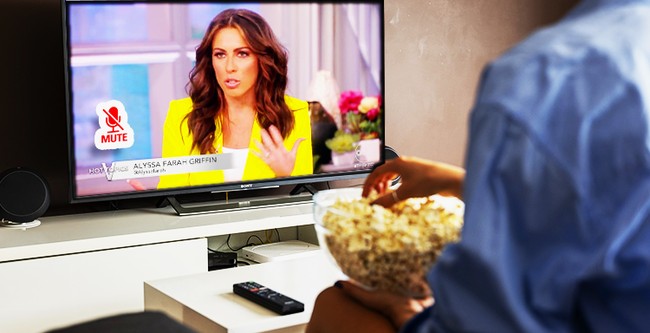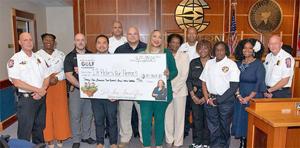Health
Alyssa Farah Griffin Sparks Debate on Vaccination and Homeschooling

Alyssa Farah Griffin, a co-host on The View, has ignited a contentious debate regarding vaccination and homeschooling. During a recent episode, Griffin suggested that parents who choose not to vaccinate their children should consider homeschooling. This statement has drawn significant criticism and raised questions about the implications of such a stance for public health and parental choice.
Griffin’s remarks came in the context of a broader discussion on vaccination rates and public health measures. She stated, “You can homeschool your kids so they’re not put into a public environment when they’re not vaccinated where they could harm other kids … The idea of public health is you do it for the greater good.” This assertion has sparked backlash, with critics arguing that homeschooling should not be seen as a requirement for parents who opt out of vaccinations.
The conversation around Griffin’s comments reflects a deeper divide in attitudes toward vaccinations, particularly in light of the ongoing COVID-19 pandemic. Supporters of vaccination frequently emphasize the importance of herd immunity, while opponents argue for personal freedom and choice. In this case, Griffin’s suggestion that parents should homeschool their unvaccinated children has been interpreted by some as an attempt to stigmatize those who choose not to vaccinate.
Many commentators took to social media to voice their opinions. Some questioned the logic behind Griffin’s argument, asking why vaccinated children should be concerned about unvaccinated peers if vaccines are indeed effective. Critics have also suggested that homeschooling is not a viable option for all families, as it may require parents to sacrifice their jobs and income to educate their children at home.
Griffin’s co-host, Sara Haines, emerged as one of the few voices on the panel to accurately address vaccination-related issues during the segment. Her remarks contrasted with the broader discourse on the show, which some viewers felt perpetuated misinformation about vaccination and public health.
The implications of Griffin’s comments extend beyond mere rhetoric, as they highlight the ongoing debates surrounding education, public health policy, and parental rights. Critics argue that suggesting homeschooling as a solution can be seen as a form of coercion, undermining the choice of parents to make informed decisions about their children’s education and health.
The response to Griffin’s statements underscores a growing concern about how public figures frame discussions on vaccination and its role in society. As the pandemic continues to evolve, the need for clear, factual communication about vaccines and their effectiveness remains critical.
Moreover, with increasing polarization on this topic, the dialogue around vaccination and education is unlikely to dissipate anytime soon. As public health officials continue to advocate for higher vaccination rates, discussions like those sparked by Griffin will play a significant role in shaping public perception and policy moving forward.
In this environment, the role of media and public figures in fostering informed debate cannot be overstated. As the conversation evolves, it will be essential for all stakeholders to engage with facts and to consider the implications of their statements on public health and community well-being.
-

 Technology5 months ago
Technology5 months agoDiscover the Top 10 Calorie Counting Apps of 2025
-

 Health2 months ago
Health2 months agoBella Hadid Shares Health Update After Treatment for Lyme Disease
-

 Health3 months ago
Health3 months agoErin Bates Shares Recovery Update Following Sepsis Complications
-

 Technology4 months ago
Technology4 months agoDiscover How to Reverse Image Search Using ChatGPT Effortlessly
-

 Technology1 month ago
Technology1 month agoDiscover 2025’s Top GPUs for Exceptional 4K Gaming Performance
-

 Technology2 months ago
Technology2 months agoElectric Moto Influencer Surronster Arrested in Tijuana
-

 Technology5 months ago
Technology5 months agoMeta Initiates $60B AI Data Center Expansion, Starting in Ohio
-

 Technology5 months ago
Technology5 months agoRecovering a Suspended TikTok Account: A Step-by-Step Guide
-

 Health4 months ago
Health4 months agoTested: Rab Firewall Mountain Jacket Survives Harsh Conditions
-

 Lifestyle5 months ago
Lifestyle5 months agoBelton Family Reunites After Daughter Survives Hill Country Floods
-

 Technology4 months ago
Technology4 months agoHarmonic Launches AI Chatbot App to Transform Mathematical Reasoning
-

 Technology3 months ago
Technology3 months agoUncovering the Top Five Most Challenging Motorcycles to Ride















